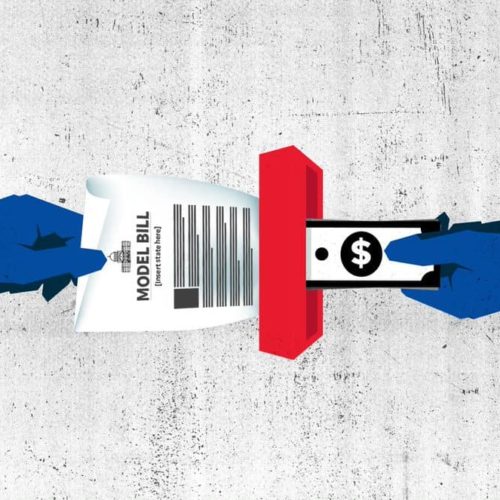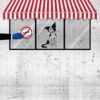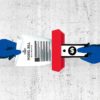Introduction
The Center for Public Integrity’s “Copy, Paste, Legislate” series, which revealed how special interests and lobbyists introduce “copycat legislation” across all 50 states, has been selected as a finalist for the 2020 Goldsmith Prize for Investigative Reporting. Public Integrity shares this honor with partner news organizations USA Today and The Arizona Republic.
The annual Goldsmith Prize is one of journalism’s highest honors, specifically recognizing investigative reporting that best promotes more effective and ethical conduct of government. The winner, announced March 12 at Harvard University’s Kennedy School of Government, wins $25,000. Finalists win $10,000.
The “Copy, Paste, Legislate” series exposed how state legislators frequently proposed cookie-cutter bills shopped to them by corporations, interest groups and lobbyists. These bills enabled the resale of defective cars, weakened smoking restrictions and aimed to enshrine hundreds of other political goals into state law. In all, this “copycat legislation” machine constitutes one of the most notable special-interest influence campaign in America despite most people — even some lawmakers — being unaware of it.
Reporting for this series required tremendous resources, combining the efforts of three news organizations as well as the creation of specialized data tracking tools. Public Integrity built a tracker that uses algorithms to detect similarities in language for these copy-and-paste bills. We found more than 10,000 — but the real numbers are probably higher.
Consequently, Public Integrity made our tracker tool publicly available, training statehouse journalists and members of the public to identify more examples of copycat legislation that continue to pop up during 2020 legislative sessions. Thus far, the regularly updated tool reveals how copycat bills affect nearly every aspect of American life, from who can grow hemp or breed puppies to what can be called “milk” or “meat” for purchase at grocery stores.
The full “Copy, Paste, Legislate” series may be found here.





Join the conversation
Show Comments
Within the opening remarks of this article I asked myself “is there any way for the consumer to know if there is a recall on their vehicle on their own?” Not wanting myself to be in a situation where I could have protected myself from severe harm or death. The answer is yes – all you need to do is go to safercar.gov and type in the VIN number to see what, if any, recalls are on a specific car. Consumers can, quite easily, protect themselves without relying on the dealers ethics. This should have been mentioned in the article.… Read more »